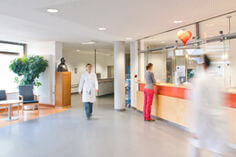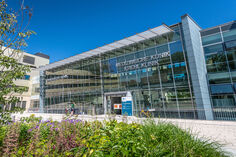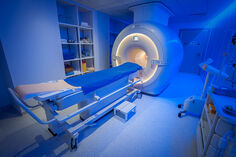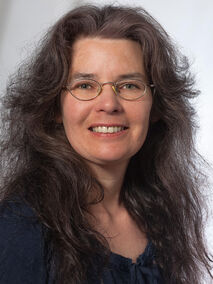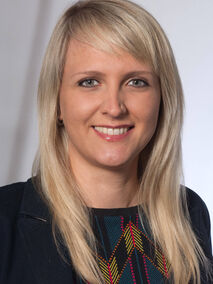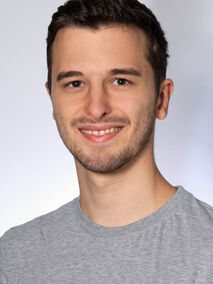- Arbeitsgruppen
- Klinisches Studienzentrum
- Sektion Kardio-Onkologie
- Section of Molecular and Translational Cardiology
- Sektion Internistische Intensivmedizin
- Klaus-Tschira-Institut für Computerkardiologie
- Heisenberg Professur für Immunkardiologie (W3)
- Heisenberg professorship for mRNA metabolismus
- Jun. Professur für Künstliche Intelligenz in der Kardiovaskulären Medizin
- Pregnancy Heart Team: Kardiologie der Schwangerschaft
- DZHK-Standort Heidelberg/Mannheim
- Heidelberg CardioBiobank (HCB)
- Scientific Management and Coordination Unit (SMCU)
AG Cardiac Proteostasis
We aim to understand age- and disease-linked changes in proteostasis (protein homeostasis) in the heart that underlie cardiac dysfunction and disease.
The overarching hypothesis that guides our research is that the levels and functions of key proteins in the heart are altered by cellular responses to age- and disease-linked changes in the intracellular environment that affect protein synthesis, protein folding, protein secretion, and protein degradation, i.e. protein homeostasis, and that these effects contribute to cardiac dysfunction. This hypothesis was developed as a result of our past and current research and it serves as the underpinning of our ongoing and future studies.
Funding from the German Center for Cardiovascular Research (Deutsche Zentrum für Herz-Kreislauf-Forschung e. V.; DZHK) provides support for our studies of protein stability in the heart.
The long-term health of all metazoan cells is linked to proteostasis. Regulated protein degradation is important for cellular protein quantity and quality control. While pathologies can arise in response to stresses that lead to imbalanced protein homeostasis, the molecular mechanisms leading to such imbalances are unknown. Elucidation of the mechanisms responsible for converting the proteome from one that promotes healthy organ function, to one that underlies diseases, such as heart failure, is important for understanding disease progression and for identifying novel therapeutic targets.
These publications reflect our current interests:
Hofmann C, Katus HA. Doroudgar S. Protein Misfolding in Cardiac Disease. Circulation. 2019;139:2085–2088.
(link to pdf)
Blackwood EA, Hofmann C, Santo Domingo M, Bilal AS, Sarakki A, Stauffer W, Arrieta A, Thuerauf DJ, Kolkhorst FW, Müller OJ, Jakobi T, Dieterich C, Katus HA, Doroudgar S, Glembotski CC. ATF6 Regulates Cardiac Hypertrophy by Transcriptional Induction of the mTORC1 Activator, Rheb. Circ Res. 2019 Jan 4;124(1):79-93.
(link to pdf)
A commentary on this article appears as follows:
Malovrh E, Völkers M. Crosstalk Between the Endoplasmic Reticulum and mTOR Signaling: How Stress Makes Our Hearts Grow Bigger. Circ Res. 2019;124:9–11.
(link to pdf)
Jin JK, Blackwood E, Azizi K, Thuerauf DJ, Fahem AG, Hofmann C, Kaufman RJ, Doroudgar S, Glembotski CC. ATF6 Decreases Myocardial Ischemia/reperfusion Damage and Links ER Stress and Oxidative Stress Signaling Pathways in the Heart. Circ Res. 2017 Mar 3;120(5):862-875.
(link to pdf)
Doroudgar S, Völkers M, Thuerauf DJ, Khan M, Mohsin K, Wang W, Respress JL, Gude N, Müller OJ, Wehrens XHT, Sussman MA, Glembotski CC. (2015) Hrd1 is a Critical Element of the Sarcoplasmic/Endoplasmic Reticulum Quality Control in the Heart. Circ Res. 2015;117:536-546.
(link to pdf)
A commentary on this article appears as follows:
Sun H, Gao C, Wang Y. A H(a)rd Way to Adapt in Cardiac Hypertrophy. (2015) Circ Res. 2015;117:484-486.
(link to pdf)
Doroudgar S, Glembotski CC. (2013) New Concepts of Endoplasmic Reticulum Function in the Heart: Programmed to Conserve. J Mol Cell Cardiol. 2013 Feb;55:85-91.
(link to pdf)
Doroudgar S, Glembotski CC. (2011) The Cardiokine Story Unfolds: Ischemic Stress-induced Protein Secretion in the Heart. Trends Mol Med. 17(4):207-14.
(link to pdf)
Doroudgar S, Thuerauf DJ, Marcinko MC, Belmont PJ, Glembotski CC. (2009) Ischemia Activates the ATF6 Branch of the Endoplasmic Reticulum (ER) Stress Response. J. Biol. Chem. 284: 29735-29745.
(link to pdf)
Team
Wiss. Mitarbeiter
Alumna
Bachelorstudent/-in
Doktorand

Open Positions
We regularly seek highly motivated students.
Inquiries should be sent to shirin.doroudgar(at)med.uni-heidelberg.de
Collaborating Scientists
Dr. Mirko Völkers, Heidelberg University Hospital
Prof. Dr. Christoph Dieterich, Heidelberg University Hospital
Prof. Dr. Wolfram-Hubertus Zimmermann, Georg-August University Göttingen
PD. Dr. rer. nat. Laura Zelarayán-Behrend, Georg-August University Göttingen
Prof. Dr. Christopher C. Glembotski, San Diego State University
- Arbeitsgruppen
- Klinisches Studienzentrum
- Sektion Kardio-Onkologie
- Section of Molecular and Translational Cardiology
- Sektion Internistische Intensivmedizin
- Klaus-Tschira-Institut für Computerkardiologie
- Heisenberg Professur für Immunkardiologie (W3)
- Heisenberg professorship for mRNA metabolismus
- Jun. Professur für Künstliche Intelligenz in der Kardiovaskulären Medizin
- Pregnancy Heart Team: Kardiologie der Schwangerschaft
- DZHK-Standort Heidelberg/Mannheim
- Heidelberg CardioBiobank (HCB)
- Scientific Management and Coordination Unit (SMCU)
